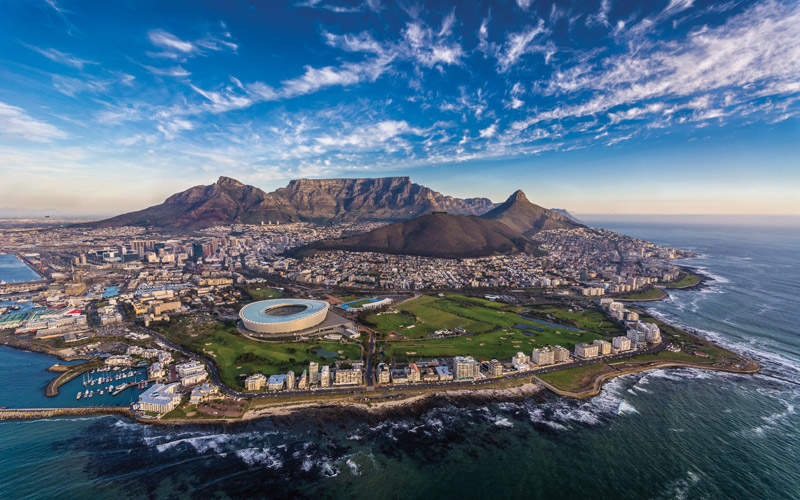South Africa’s most special café where 5 of 5 who’ve ...
Challenging Misconceptions of Mental Health in Cape Town
Overcoming the stigma is more daunting than coping with the illness itself, says Rene Minnies of Cape Mental Health
Mental illness can affect anyone: a family member might be born with a mental disability or you could suffer a brain injury, a crisis or an emotional distress. Imagine if you were met with barriers, unwanted labels and negative public perception.
Cape Mental Health Society is committed to challenging socially restrictive and discriminatory practices so that people living with mental illness or disability may function fully within their society. I caught up with manager of psychosocial rehabilitation Rene Minnies, to find out more.
The needs of the psychiatrically disabled are different, less obvious and difficult to understand
"Some of the common myths or misconceptions associated with mental illness or disability are that they are one and the same condition, that psychiatric disorders are not true medical illnesses like heart disease, that people living with mental illness are violent, possessed by demons or suffering from a personality weakness and that mental disability is the result of bad parenting.
"These perceptions, which originate from ignorance and a lack of understanding, create social barriers and actually hinder recovery. Widespread discrimination robs people living with mental illness or disability of their self-confidence and denies them the opportunity to develop their full potential in areas including employment. As a result, they are less likely to seek help.
"Often people do not want to acknowledge their need for support or do not know how to raise the issue. This is a serious problem because early identification and treatment is usually associated with better outcomes. Even families and service-providers can be uniformed which can lead to a lack of care, treatment and support.
"Cape Mental Health operates 27 community-based programs in the Western Cape which reach more than 15 000 people annually through assessment, counselling and support for people living with mental disabilities and their families, liaison with schools to ensure that service-users are provided with appropriate opportunities, as well as mental health awareness programs and a public education program.
The mentally ill need support to be included in their families and society and to be re-employed
"At Cape Mental Health we view disability as a human rights issue and believe that people with mental diabilities need to be afforded the same rights as every other citizen. If people with disabilities are afforded the same opportunities for employment the burden on state resources will be reduced as the person will be able to contribute to the economy, rather than to rely on social security from the state," explains Rene.
Fountain House, a project of Cape Mental Health, is a day centre providing psychosocial rehabilitation (PSR) including support and vocational training for adults living with mental illness or disability. The project provides individual and family counselling to improve knowledge, understanding and management of the condition. The Rainbow Foundation, also part of Cape Mental Health, is a network of community-based groups that provide psychosocial support in order to reduce relapses and re-hospitalisation.
Megan is a 33 year old female who has Bipolar Mood Disorder – a cycle of sudden and dramatic shifts in extreme emotion where a great burst of energy can be followed by severe depression. Before her diagnosis Megan was a team leader at one of South Africa's leading banks and received several awards for her and her team's success. Despite being well spoken, well educated and hardworking Megan was met with prejudice and struggled to find employment after her diagnosis. With the help of Cape Mental Health she is currently employed at a well-established NGO.
When asked how Fountain House supported her in her search for employment she says: "The Employment Unit was useful in enabling members to peruse the local newspapers and the internet for jobs whilst adverts for employment opportunities were posted on their notice board."
‘If I can achieve this with schizophrenia, then I'm sure others out there can do so much more’ - Oscar
Oscar became one of the one in every hundred people to be affected by schizophrenia at 19-years-old. People with schizophrenia are only slightly more likely to be violent than the population as a whole and violent behaviour usually occurs due to acute symptoms or a lack of treatment. With modern medication almost half of affected people can expect a full recovery (World Health Organisation Information Sheet No. 265 – Dec 2001).
"Some of the first symptoms I felt after my nervous breakdown were paranoia, inability to identify peoples' intentions, inability to focus on my work and deep feelings of loneliness," explains Oscar, "My mother had noticed changes in my behaviour and took me to her GP. Up until then I was unaware that I'd had a nervous breakdown or that I had schizophrenia."
Oscar came to terms with his condition through family support, self-admission and acceptance. He regularly visited his day hospital where his condition and intake of medication was monitored.
With support from Cape Mental Health Oscar has recently been elected as the chairperson of Cape Consumer Advocacy Body (CCAB), an organisation that advocates and lobbies on issues affecting those living with psychiatric disability, has achieved much in protecting human rights and has participated in research on the new Mental Health Care Act 17 (2002).
"All people can be empowered to achieve the highest possible level of mental health and quality of life," adds Rene, "I see the difference that Cape Mental Health makes to people's lives on a daily basis. Working in a field where people are so marginalised and being part of an organisation that challenges this is very rewarding."
You can support Cape Mental Health through funding and donations, gifts, volunteering and programmes. Attend the Cape Town International Kite Festival or contact Cape Mental Health on +27 (0)21 447 9040 for more information.
---
Show your support for mental illness by going to the 25th Annual Kite Festival.
Bring mind and body together at Holistic Wellness Day.
Help break the stigma surrounding mental health, self-harm and suicide at this sunrise 5K, Darkness Into Light.
By Lisa Nevitt








